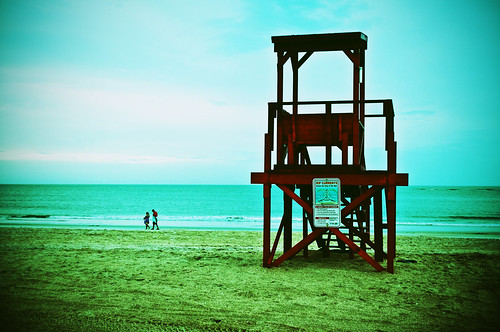A Left-Libertarian Solution for BP’s Disaster (Video)
Centrism, “getting the job done”, pragmatism, whatever. I want the right response to the Deepwater Horizon disaster. But, it’s not an ideological target I’m looking for. So, why then, does Byron King try to scare taxpayers with his homily on BP’s sainted role in the American economy?
And for as much as people in the U.S. are thinking this is a British company, this is really an American company as well. Out of 80,000 worldwide employees, over 30,000 are in the U.S. Of the stock market ownership, about 40 percent of BP shares are owned by — by — you know, within the U.S.
And BP is the largest oil producer in Alaska. It is half owner of the Alaska pipeline. It’s the largest oil producer in the Gulf of Mexico. Globally, BP produces over four million barrels of oil equivalent per day, which is about 5 percent of the total global world oil output.
It’s the largest supplier of liquid fuels to the U.S. Department of Defense. So, we have to be very careful about, you know, doing things to BP that — that will disrupt all of this in a way that can turn an environmental catastrophe into an economic and energy catastrophe, not just for the U.S., but worldwide.
Yes, it’s a British company that knows how to survive, by selling fuel to Americans and by winning defense contracts. Its tanking stocks could take even more employees down with it. So, as for a response, what are the choices?
JUDY WOODRUFF: Byron King, you just said we have to be careful. But do you that believe BP’s survival is at stake?
BYRON KING: I didn’t think survival was at stake a couple of weeks ago, when we were just analyzing things in a rational sense of cash flow, assets, and, you know, the ability to, you know, for a very large company to deal with a very bad environmental disaster.
In the past week, we have seen, I think, a lot of political hysteria kick in, although I also think that, this coming week, we’re going to see some of that political hysteria slow down. I think that people are going to back off.
So, it’s, what, do nothing, or hysteria? Next, it’s more about xenophobia in Britain, how BP contributes to the British pension funds and state coffers, and the long period of payback BP will have to endure. And then:
So, BP has a lot of cash flow with which to pay things. And, also, you need to realize that we’re not asking BP and BP isn’t going to pay all of its damages tomorrow. BP is going to clean things up over many, many years. This is going to play out over five years, eight years, 10 years.
And the long-term environmental effects, we don’t know. They are probably going to be monitoring the Gulf of Mexico and the Atlantic Ocean forever, for the rest of your and my life. That’s for sure.
Voyeurism, and a long installment plan? That’s better than the average homeowner gets these days. Set aside for the moment, that there’s no discussion of options, but now here’s the bottom line
If the politics become very, very ugly — and we have heard sounds of, oh, we should seize their assets, we should break them up, we should put them in receivership, you know, then — then — then things are off. You know, and who knows what would happen to those assets?
I mean, the Alaska pipeline that BP owns half of could wind up being the China pipeline. Or the — you know, Prudhoe Bay could get sold to the Russians. I mean, there’s all sorts of things that we can do that would disrupt the — you know, disrupt the energy economy of the United States.
Xenophobia and hysteria?
What’s the difference between a utility (and, there are private ones, too) and a state-owned enterprise (SOE)? King is worried about pieces of BP becoming an SOE, but he makes BP sound like a private utility. And, I’m not talking about creating a utility, or even regulating BP. Clearly, like a child, BP misunderstood the rules of its enterprise. In return for unfettered control over its own existence, the general public assumed it was responsible enough not to pollute and lose millions of gallons of oil. So, like banks, it needs to be as big as a properly functioning corporate board can handle. Like the banks on Wall Street, we need a time-out, a new Glass-Steagall for corporations. At this point, BP is worse than an SOE. It needs to raise its game to the level some SOE wouldn’t just want to buy it, to pick over its bones.
Here’s another solution offered by libertarian Charles Wohlforth: local government regulation.
Let me be clear: I’m not hysterical, even if shills like Byron King are preemptively acting so. I want to set rules of the game, like a Taylor Rule for the Federal Reserve, not gut it, sell it, or sue it for criminal liability. Clearly, BP, and many other energy companies, can’t act responsibly without fear of an SOE or popular vengeance. What I want is the rule of law, not mob rule or corporate oligarchy.
But, since he’s really shaking about it, let’s sell Byron King to China! Oh, damn, right, the 13th Amendment outlaws slavery!
Filed under: Business/Economy, Environment, Europe, Law, PBS, Podcasts, Politics, USA Tagged: bp, britain, byron king, charles wohlforth, deepwater horizon, glass-steagall, libertarianism, oil spill, online newshour, regulation, soe, utility, xenophobia



















Recent comments